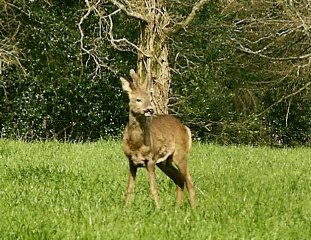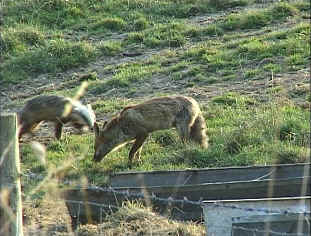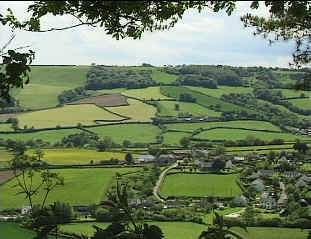Biodiversity & Wildlife
(3)
 |
Whilst modern intensive grassland cannot compare in wildlife terms to our forefathers' low yielding fields, neither are they devoid of wildlife. Modern grasslands provide a feast for herbivores such as Roe Deer (left). |
 |
Other animals including rabbits and voles also take advantage of the grass. They in turn are predated upon by animals such as stoats, foxes and buzzards. At night, badgers can often be seen foraging for dung beetles and earthworms which are their favourite food. Badger populations are high as a consequence. When conditions are right during the daytime, earthworms will come to the surface. Often, this will attract large numbers of Buzzards and they can be be seen waddling across the field, in pursuit of this unlikely prey. |
 |
Field sizes have increased over the years. This has resulted in the loss of many valuable wildlife habitats such as woodlands and wet meadows as well as thousands of miles of hedgerows. Few animals have benefited from this habitat loss. Nevertheless, animals such as Hares prefer larger fields although their habitat requirements are more complex than just the need for sizeable fields. |